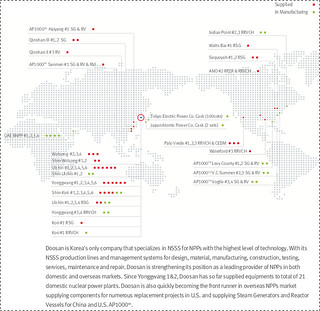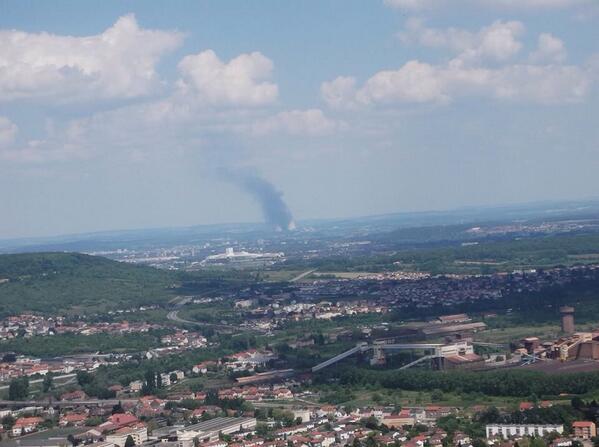TEPCO
that lied about deadly levels of radiation at Fukushima
 is part of the industry
Southern Company CEO Tom Fanning brags about
as producing
is part of the industry
Southern Company CEO Tom Fanning brags about
as producing
“nuclear power as a clean, safe, affordable solution for this world’s energy future”.
SO and Georgia Power are building two new nukes at Plant Vogtle on the Savannah River, including parts by Korea’s document-forging Doosan. Forging as in lying, as in what the Korean press is now calling the Korean nuclear mafia of power companies, vendors, and testers. Stateside U.S. NRC is refusing to supply Congress with safety documents. And when I asked NRC if they were going to take account of Doosan in their webinar about foreign ownership of U.S. nuclear reactors NRC staff told me Vogtle was an unbuilt reactor and they were only dealing with existing power reactors. Which is very strange, considering their Commission Direction explicitly refers to unbuilt and not-even-permitted Calvert Cliffs 3 in its subject.
 And considering Doosan’s online map of its customers includes
not only six not built yet,
Vogtle 3,4, Summer 2,3,
Duke Energy’s Levy County 1,2 (since
cancelled),
but also nine operating nuclear power reactors,
Entergy’s
Waterford 3 (west of New Orleans; remember the dark Super Bowl?),
TVA’s
Sequoyah 1 and 2 near Chattanooga and
Watts Bar 1 near Knoxville
(all
within 500 miles of here) plus
Entergy’s
Indian Point 2 and 3 near New York City and
Arizona Public Service’s
Palo Verde 1,2,3 near Phoenix, Arizona.
With Vogtle 2 and 3, that’s fifteen reactors in the U.S.
supplied by document-forging Doosan.
OK, 13 now that
Levy County 1 and 2 won’t be built.
And considering Doosan’s online map of its customers includes
not only six not built yet,
Vogtle 3,4, Summer 2,3,
Duke Energy’s Levy County 1,2 (since
cancelled),
but also nine operating nuclear power reactors,
Entergy’s
Waterford 3 (west of New Orleans; remember the dark Super Bowl?),
TVA’s
Sequoyah 1 and 2 near Chattanooga and
Watts Bar 1 near Knoxville
(all
within 500 miles of here) plus
Entergy’s
Indian Point 2 and 3 near New York City and
Arizona Public Service’s
Palo Verde 1,2,3 near Phoenix, Arizona.
With Vogtle 2 and 3, that’s fifteen reactors in the U.S.
supplied by document-forging Doosan.
OK, 13 now that
Levy County 1 and 2 won’t be built.
How about we say the same soon about Vogtle 3 and 4? That they won’t be built? Probably Georgia Power CEO Paul Bowers could say that. GA PSC, Georgia legislature, or SO CEO Tom Fanning could say that. We’re listening.
-jsq


